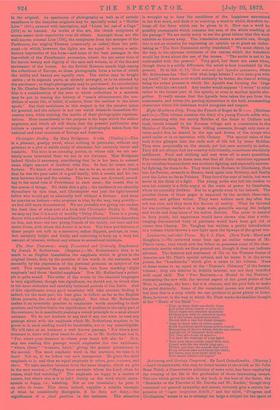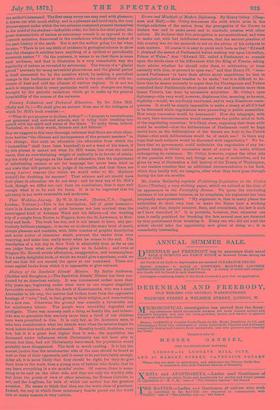Astronomy and Geology Compared. By Lord Ormathwaite. (Murray.) —Lord Ormathwaite,
who may be better known to the world as Sir John Benn Walsh, a Conservative politician of some note, has been employing the evening of his life in the production of these interesting essays. The one which gives its title to the book is the best of the three; the "Remarks on the Theories of Mr. Darwin and Mr. Buckle," though they command our general sympathy and assent, certainly give a certain 101-. presaion of "impar congresses Achilli ;" and the third, "Progress and Civilisation," seems to us to attempt too large a subject for the space at
the author's command. The first essay every one may read with pleasure; it draws out with much ability, and in a pleasant and lucid style, the very diverse aspect under which the two sciences compared present themselves to the mind of the student—inflexible order, for this is the chief point, the great characteristic of nature as astronomy reveals it, as opposed to the constant mutation discovered in the revelations which geology makes of the past history of the earth. But is not the author going too far when he Bays, "There is not one tittle of evidence in geological science to show that the changes it exhibits have anything of a cyclical or periodically recurrent nature "? On the contrary, it seems to us that there is some such evidence, and that it illustrates in a very remarkable way the regularity of nature as revealed by astronomy. The theory of a" glacial period" accounts for many terrestrial phenomena, and the glacial period is itself accounted for by the nutation which, by making a periodical change in the inclination of the earth's axis to the sun, affects with ex- tremes of heat and cold the climate of various regions. It is not too much to suppose that in every particular world such changes are being wrought by the periodic variations which go to make up the general invariability of the course of the universe.



































 Previous page
Previous page